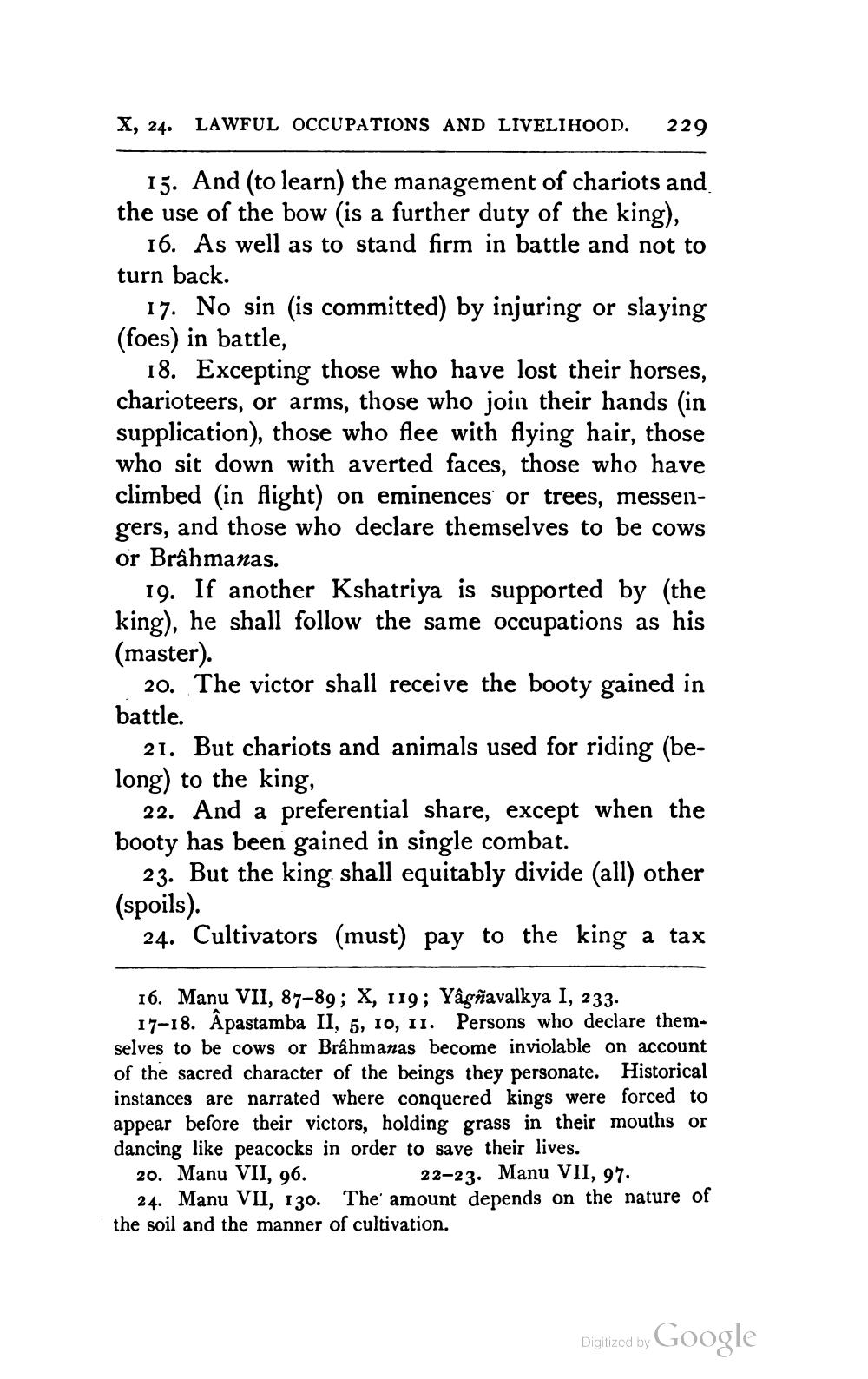________________
X, 24. LAWFUL OCCUPATIONS AND LIVELIHOOD.
229
15. And (to learn) the management of chariots and the use of the bow (is a further duty of the king),
16. As well as to stand firm in battle and not to turn back.
17. No sin (is committed) by injuring or slaying (foes) in battle,
18. Excepting those who have lost their horses, charioteers, or arms, those who join their hands (in supplication), those who flee with flying hair, those who sit down with averted faces, those who have climbed (in Aight) on eminences or trees, messengers, and those who declare themselves to be cows or Brâhmanas.
19. If another Kshatriya is supported by (the king), he shall follow the same occupations as his (master).
20. The victor shall receive the booty gained in battle.
21. But chariots and animals used for riding (belong) to the king,
22. And a preferential share, except when the booty has been gained in single combat.
23. But the king shall equitably divide (all) other (spoils).
24. Cultivators (must) pay to the king a tax
16. Manu VII, 87-89; X, 119; Yâgñavalkya I, 233.
17-18. Âpastamba II, 5, 10, II. Persons who declare themselves to be cows or Brâhmanas become inviolable on account of the sacred character of the beings they personate. Historical instances are narrated where conquered kings were forced to appear before their victors, holding grass in their mouths or dancing like peacocks in order to save their lives. 20. Manu VII, 96.
22–23. Manu VII, 97. 24. Manu VII, 130. The amount depends on the nature of the soil and the manner of cultivation.
Digitized by Google




